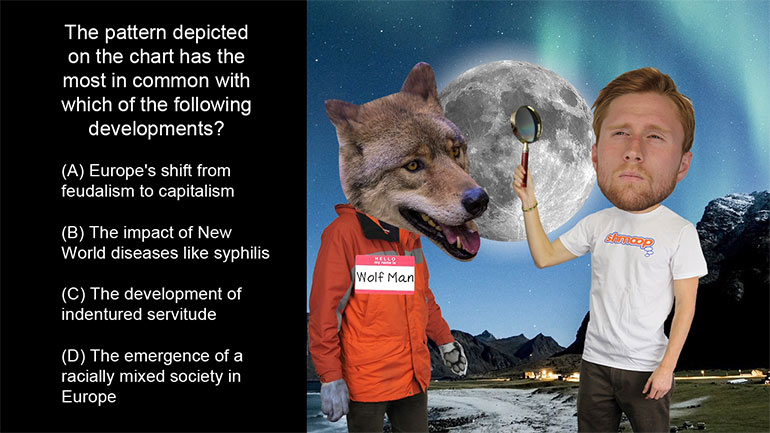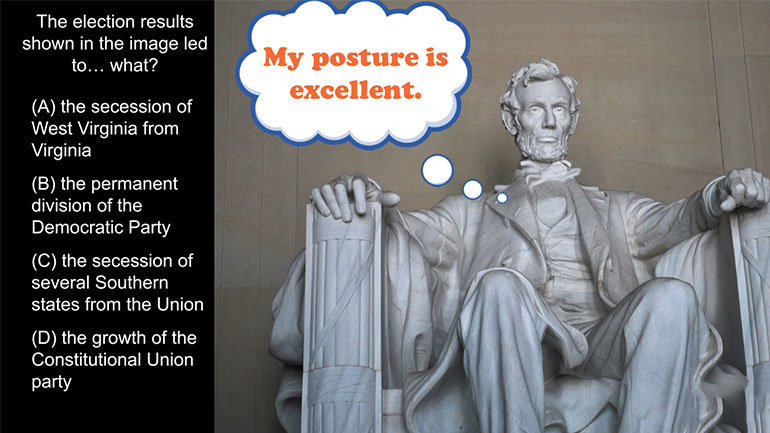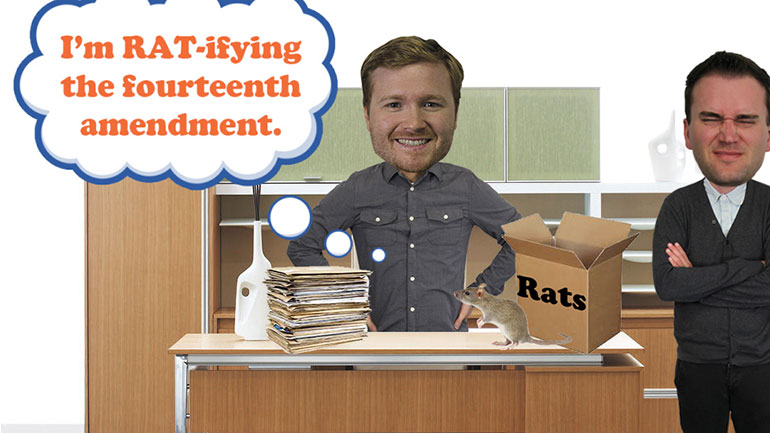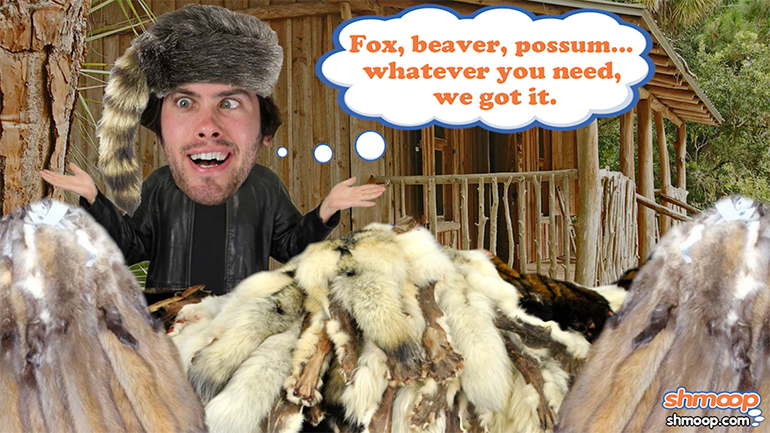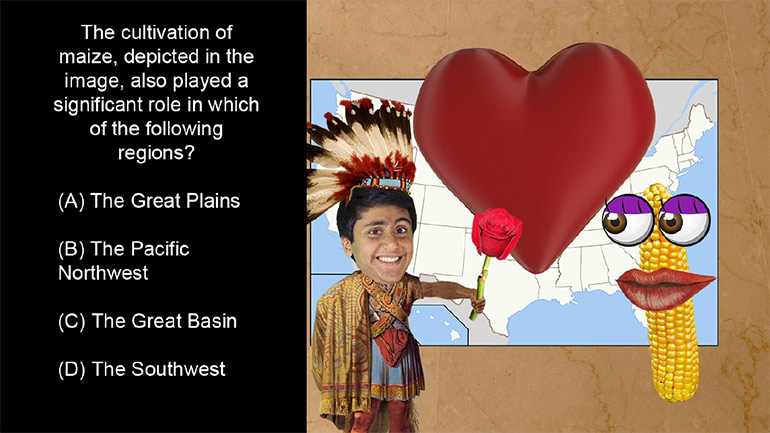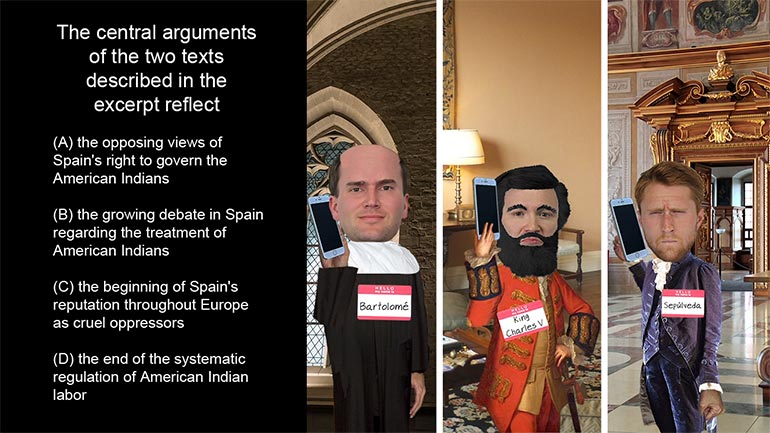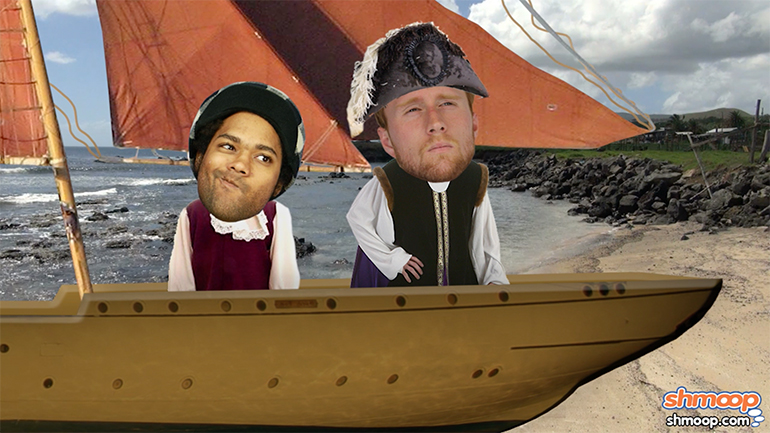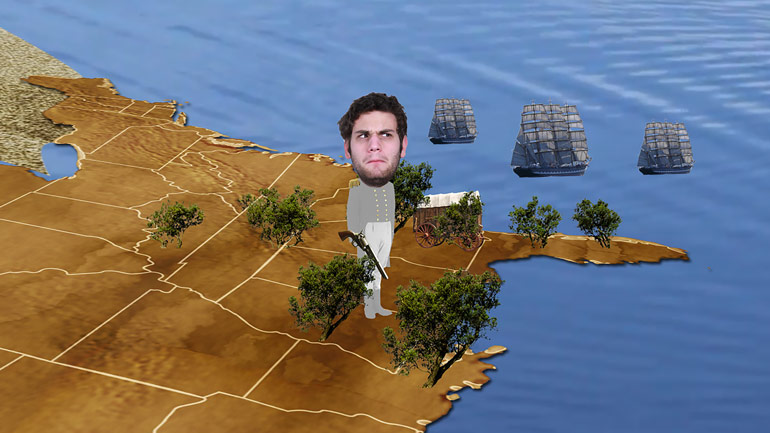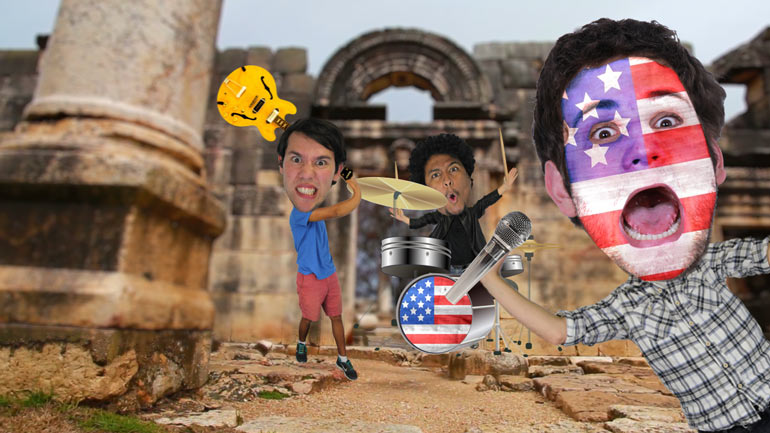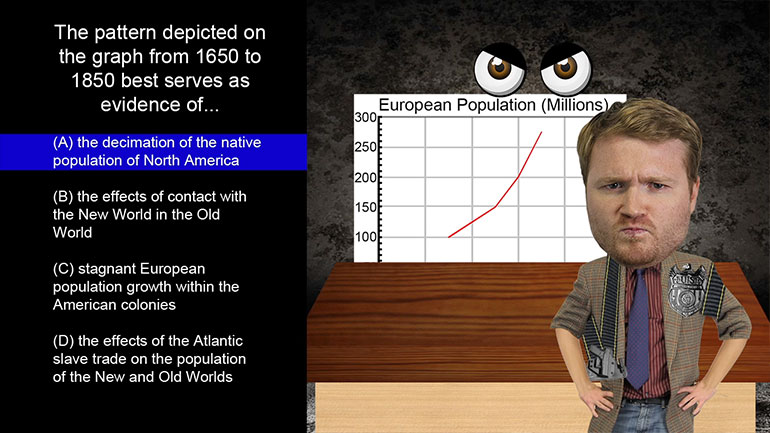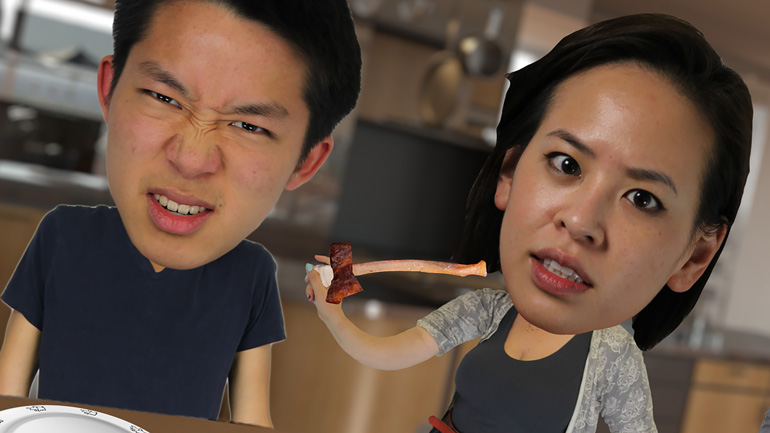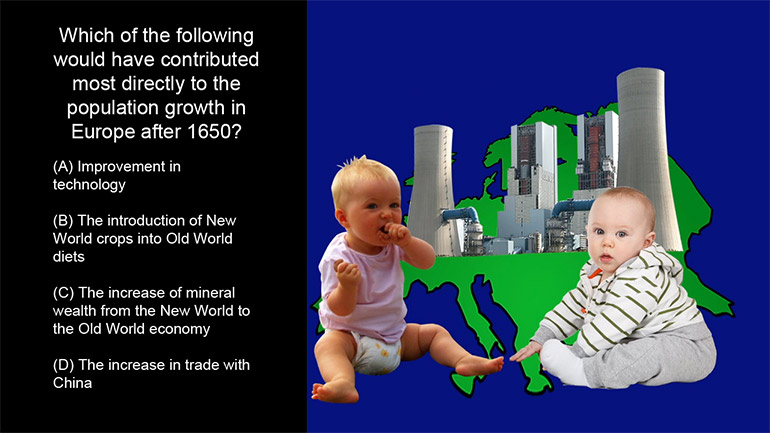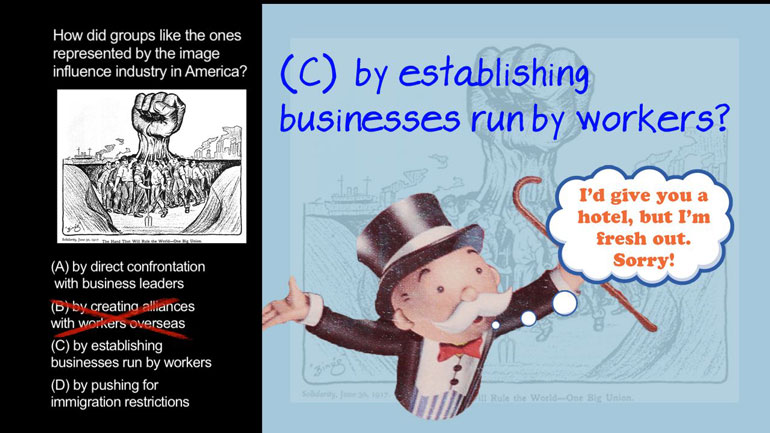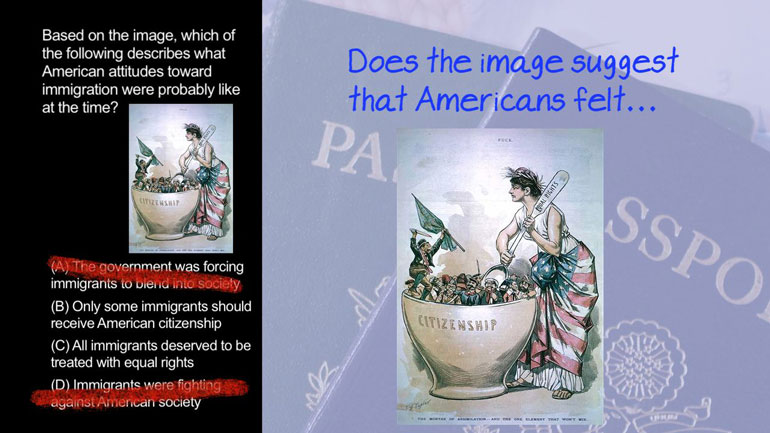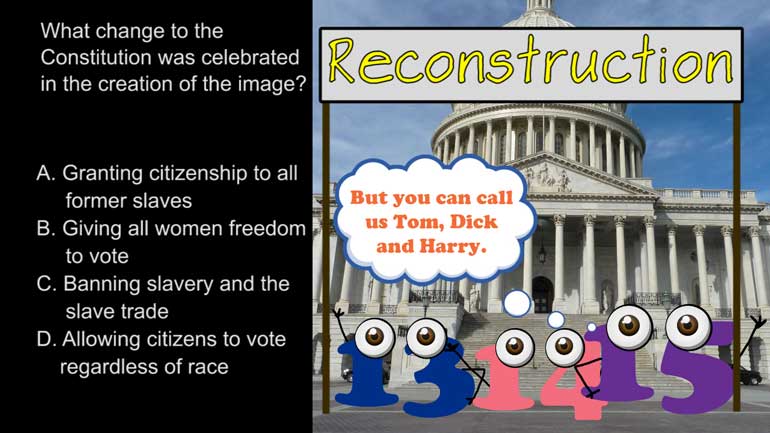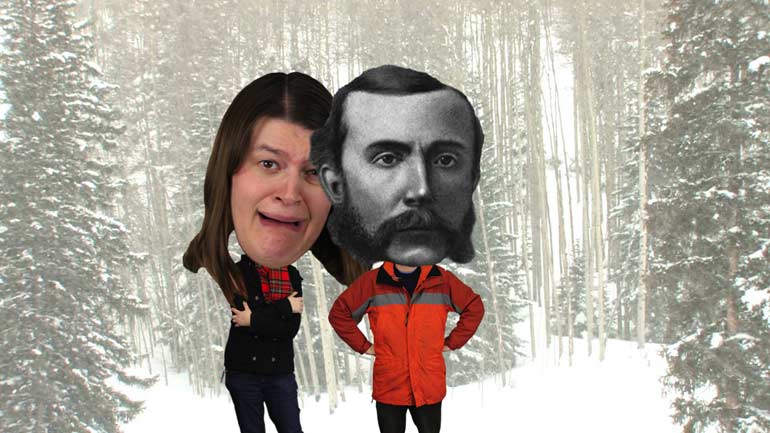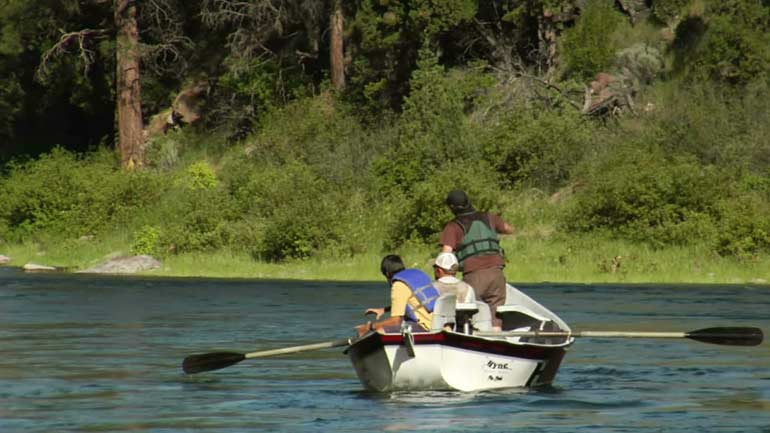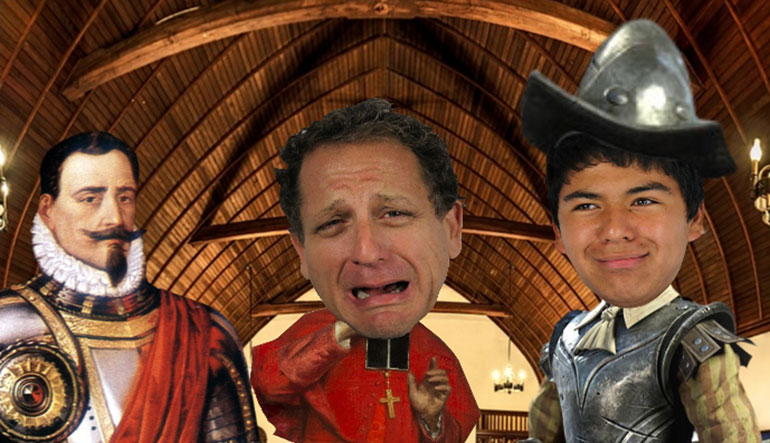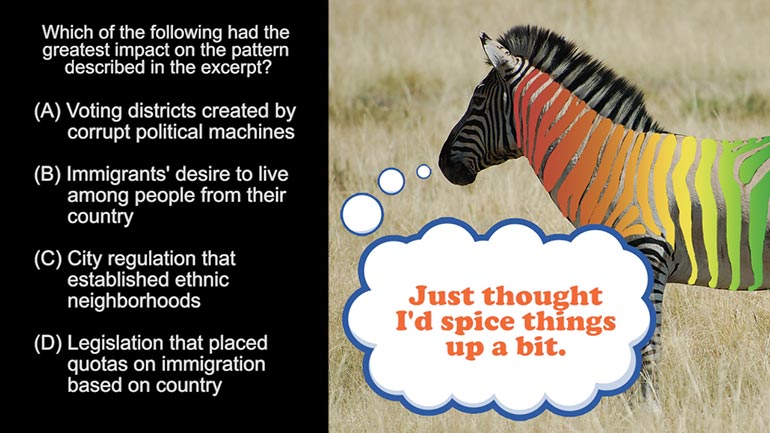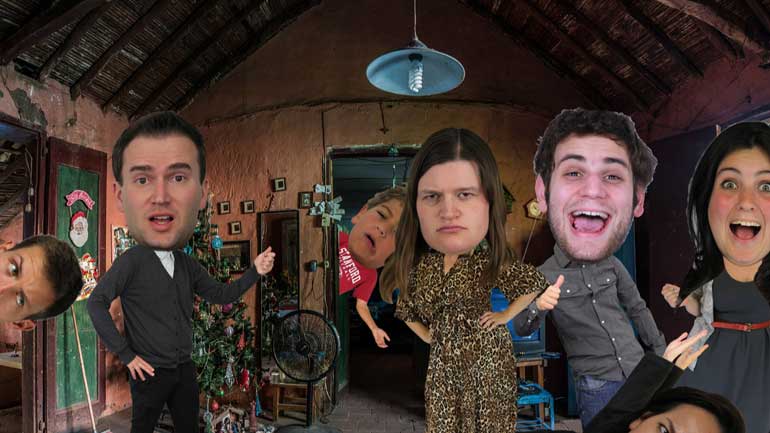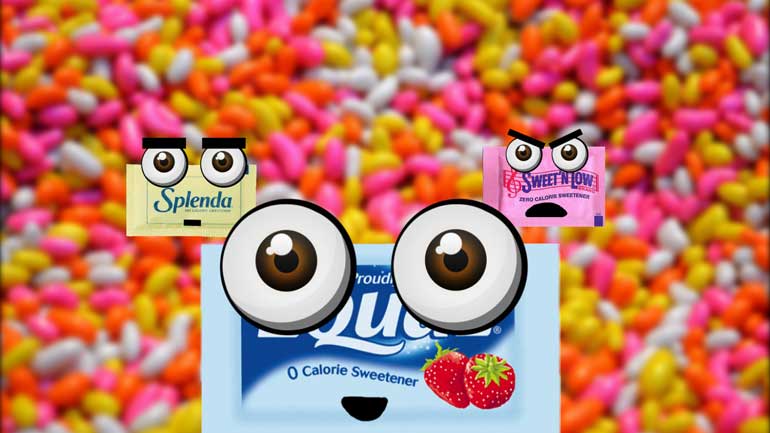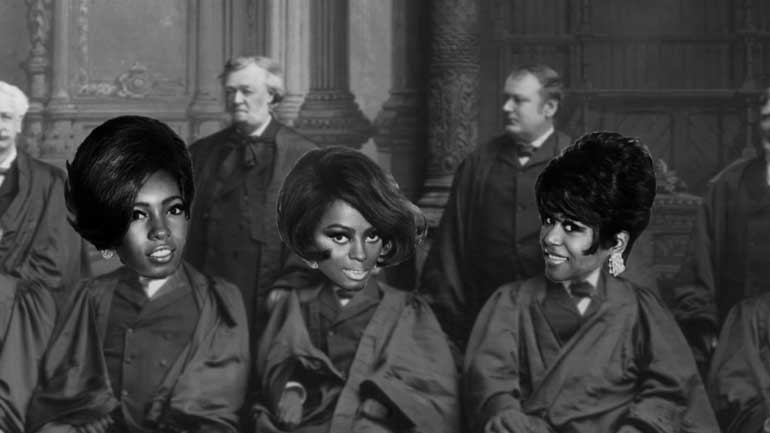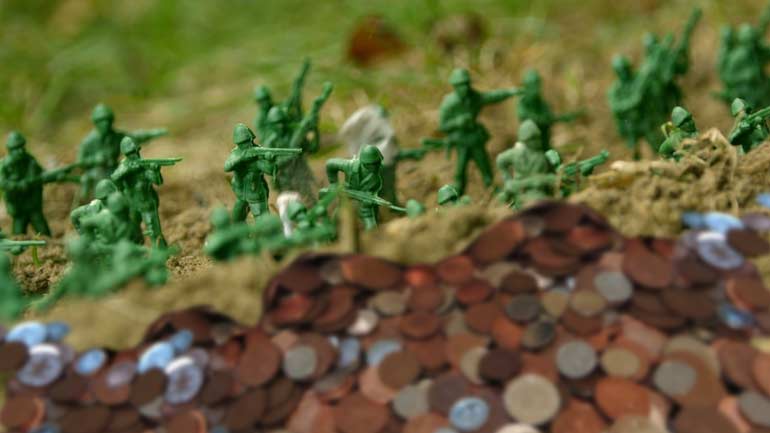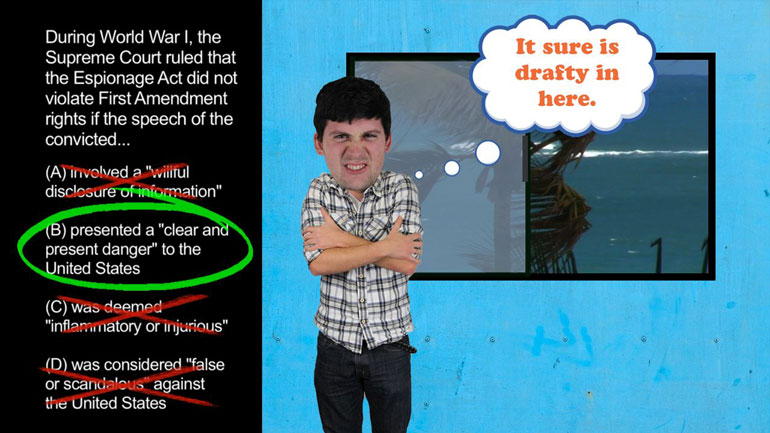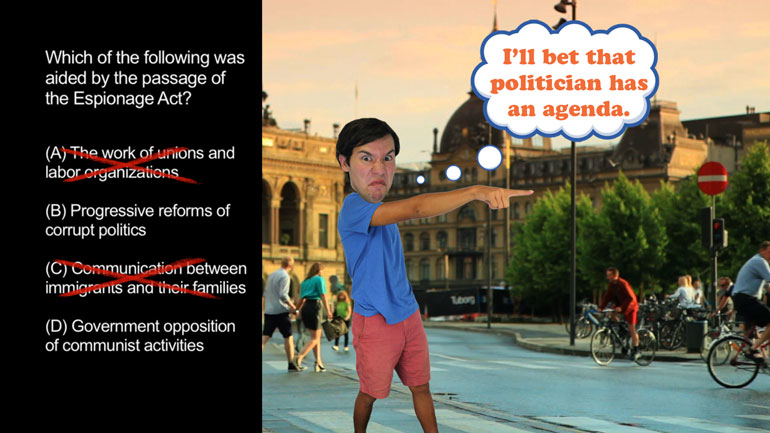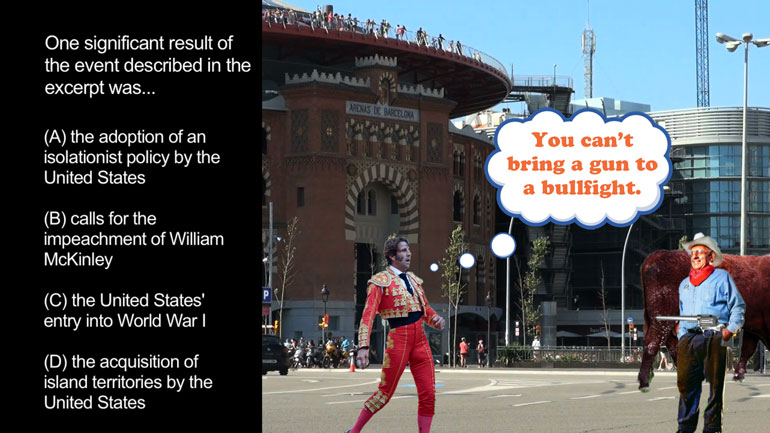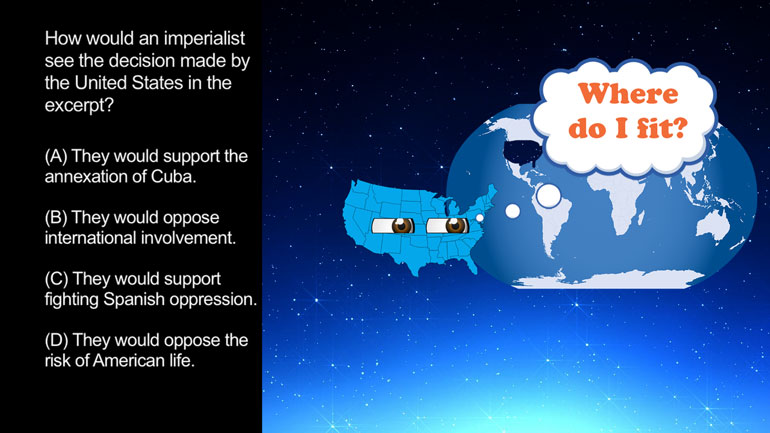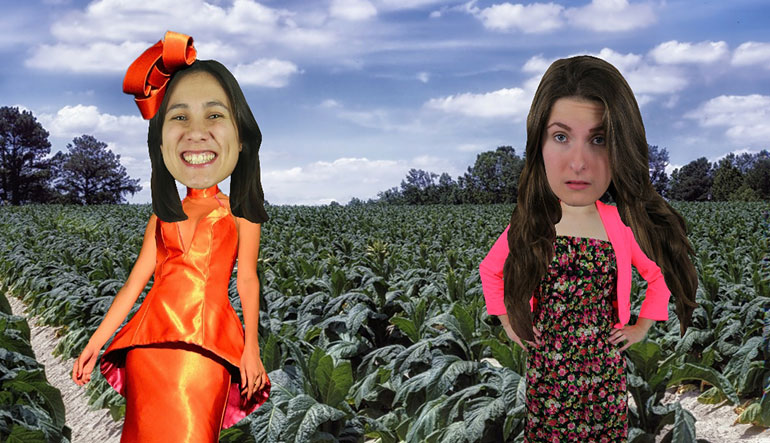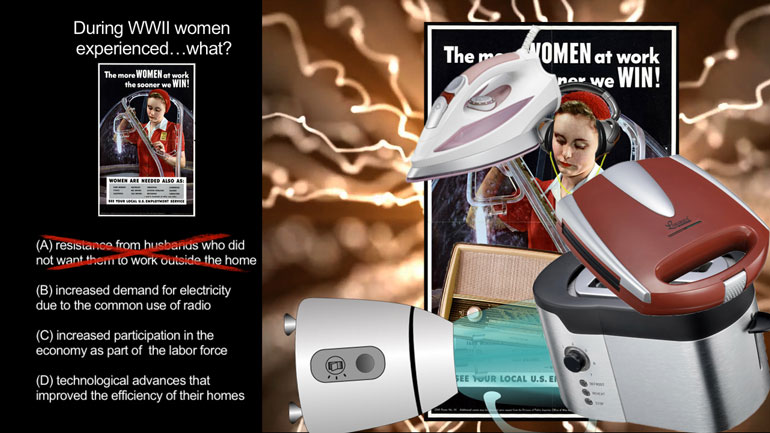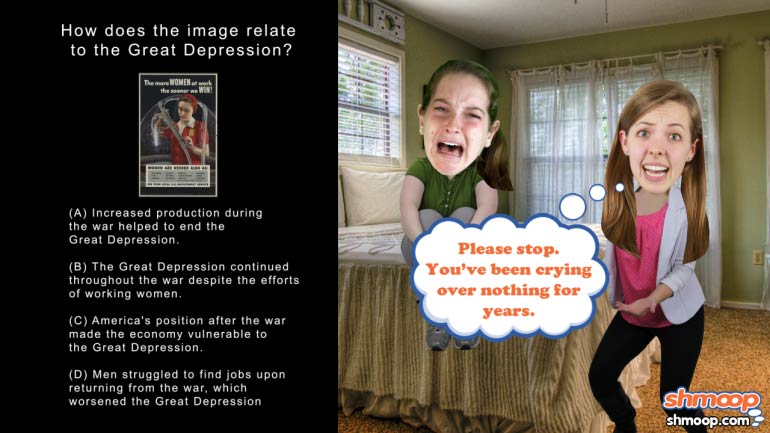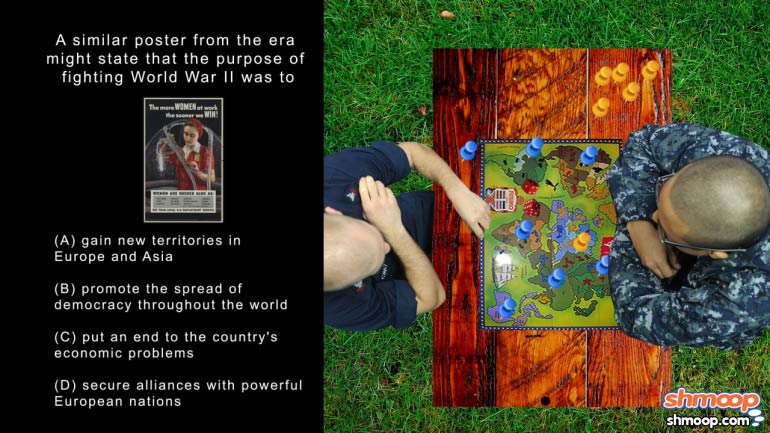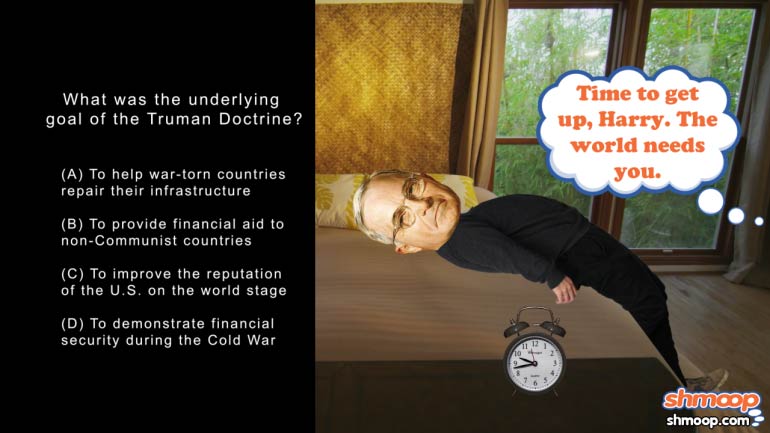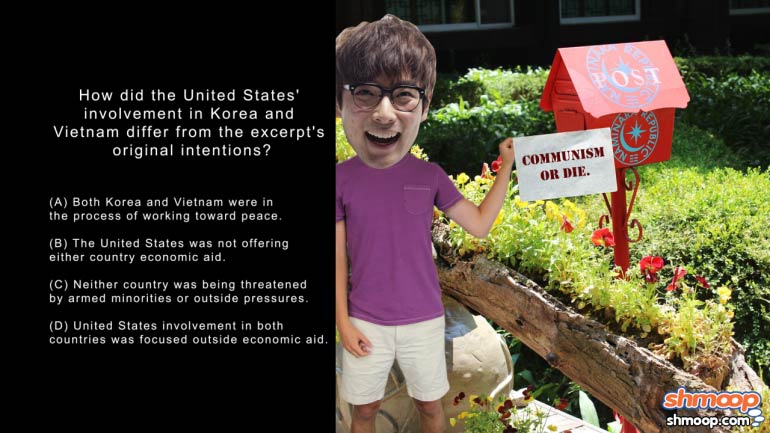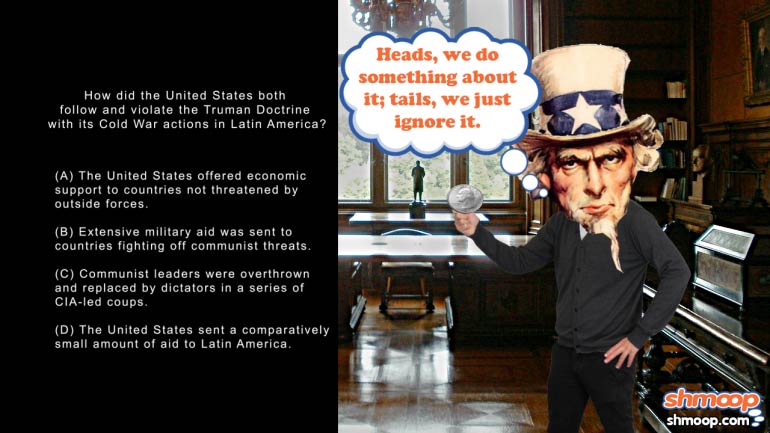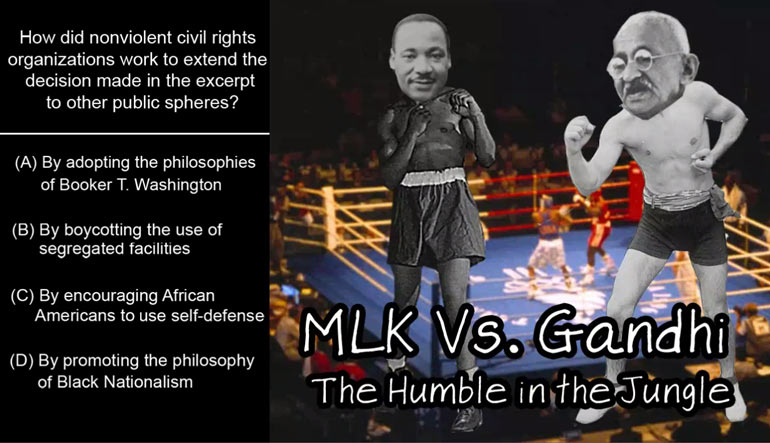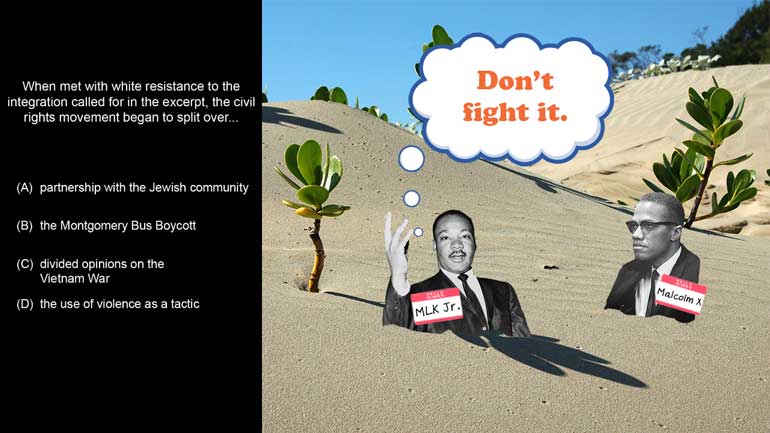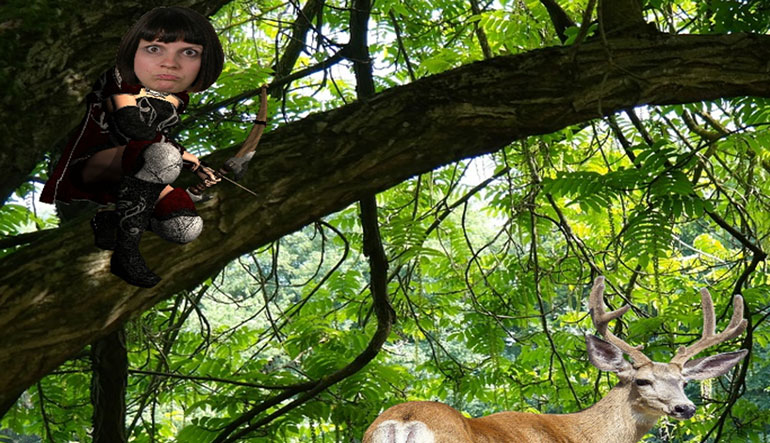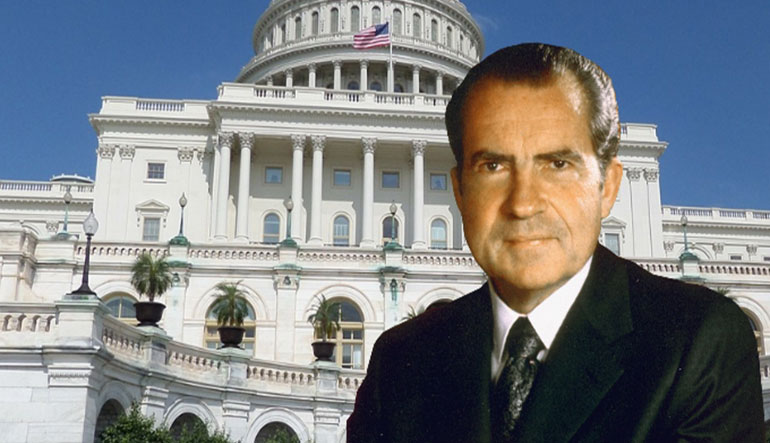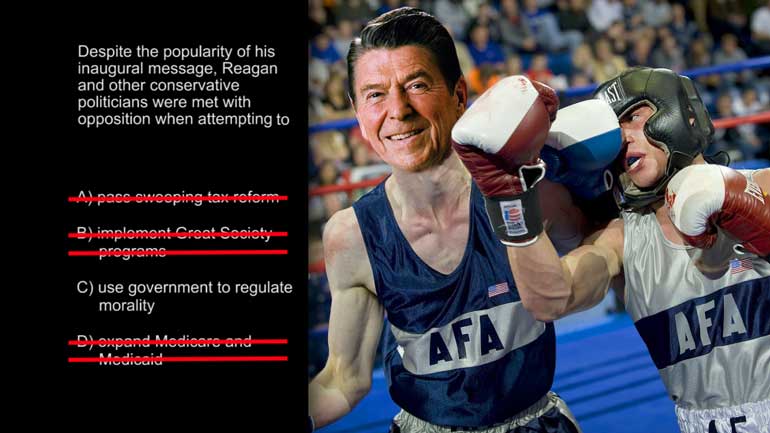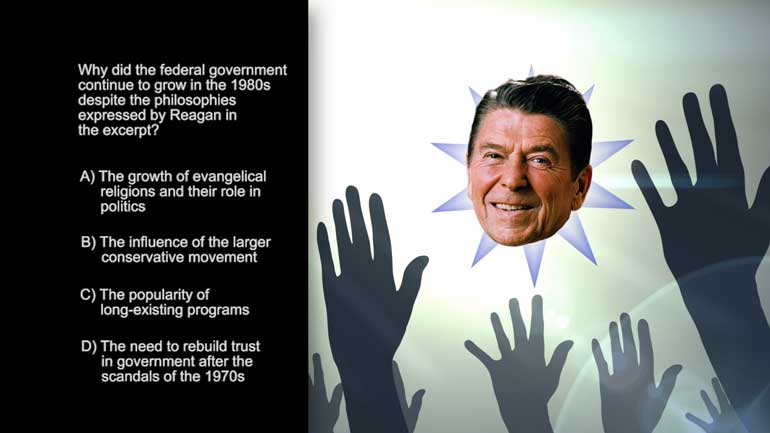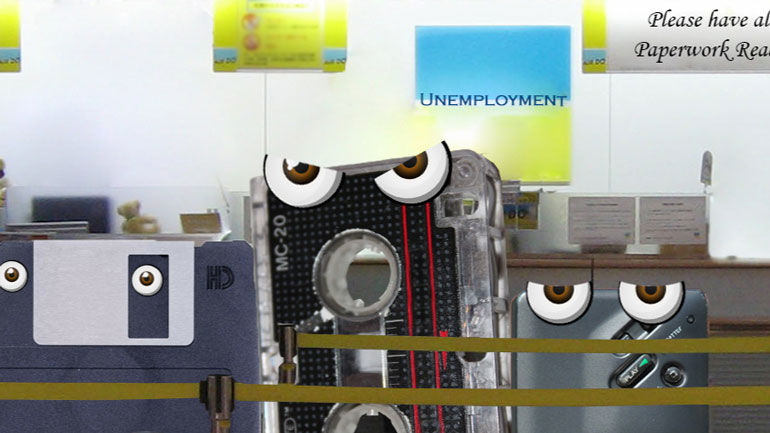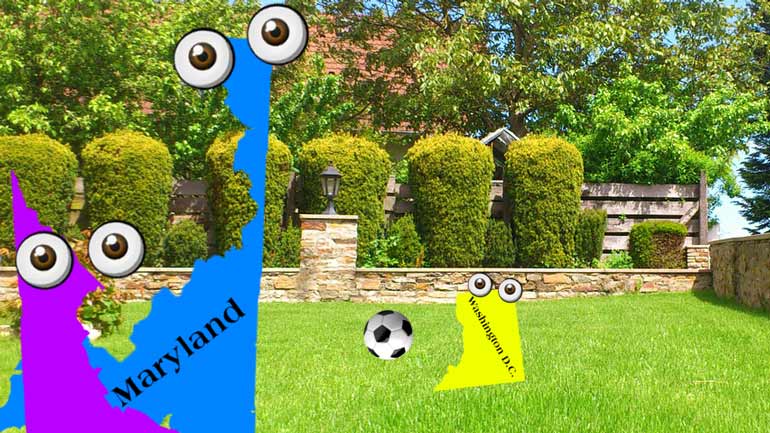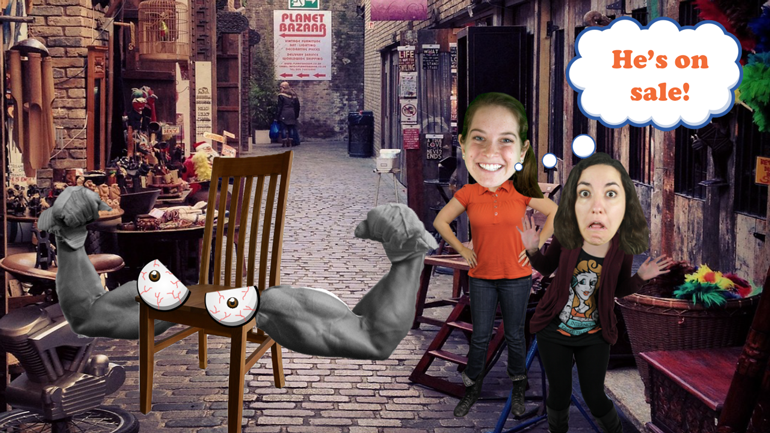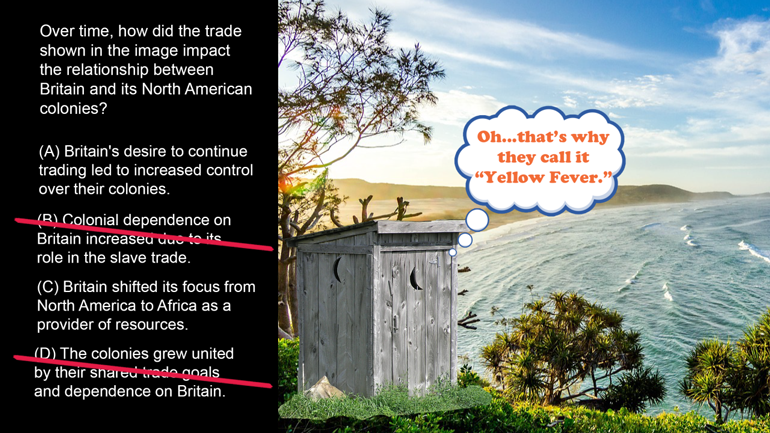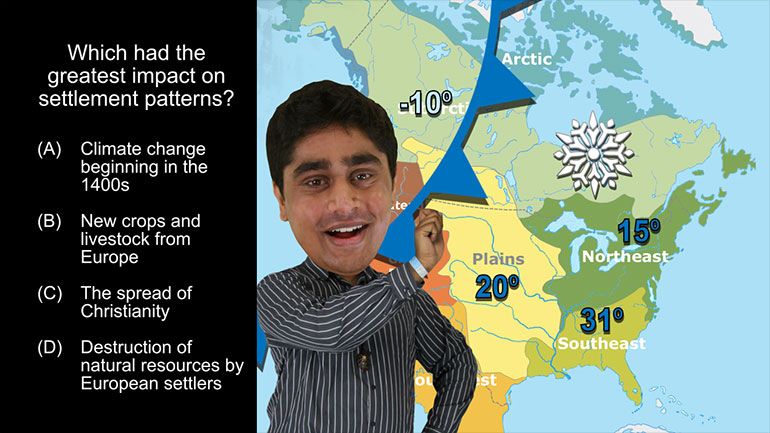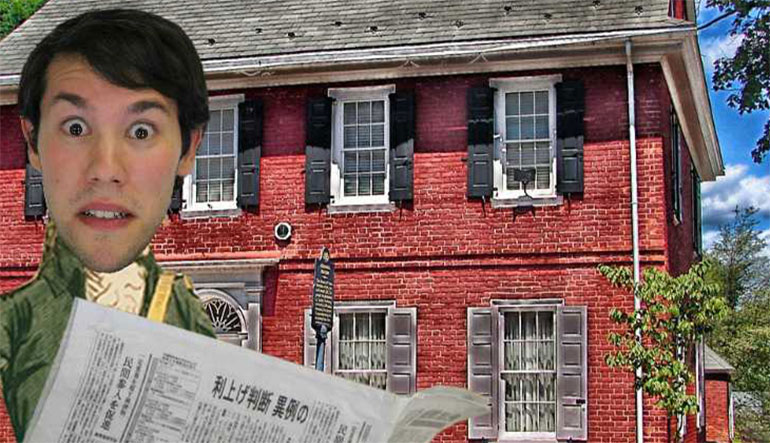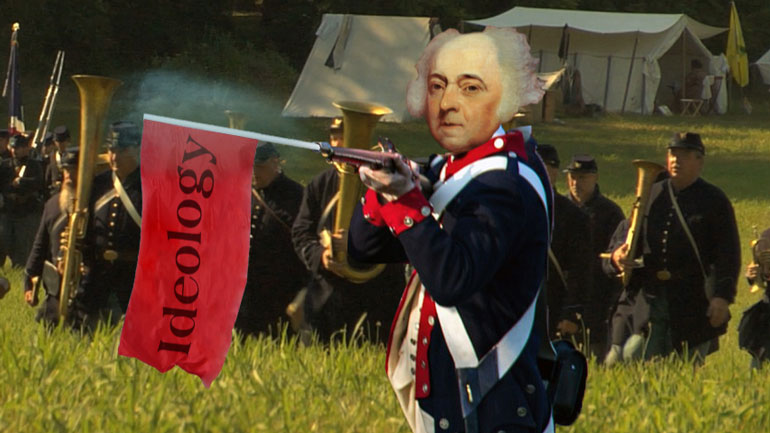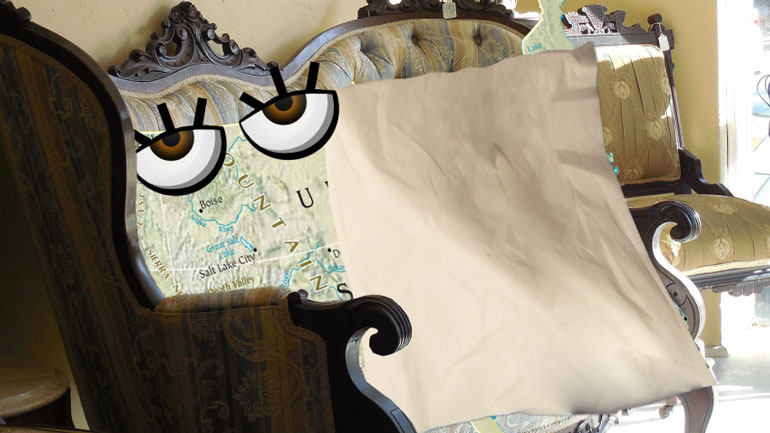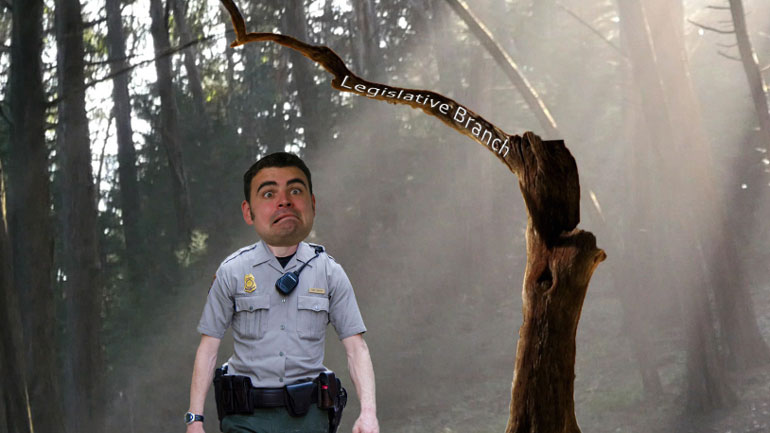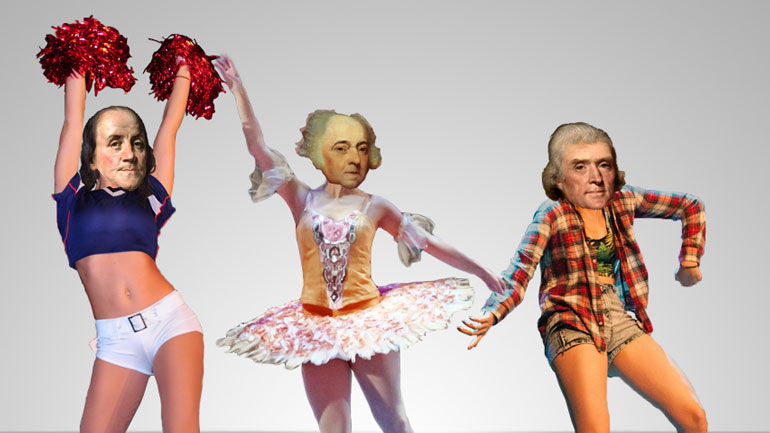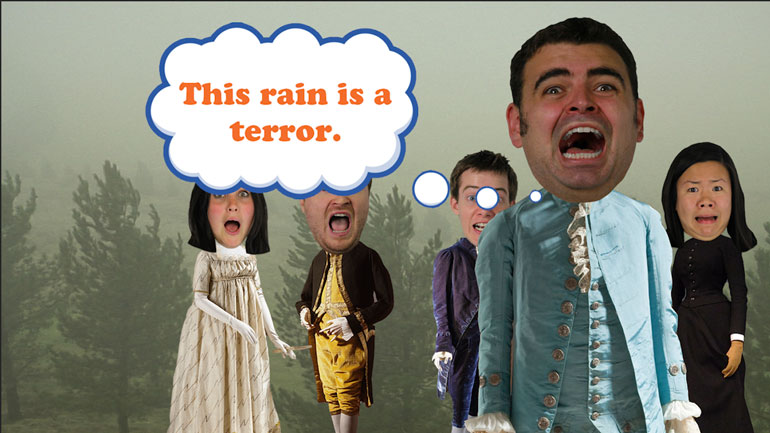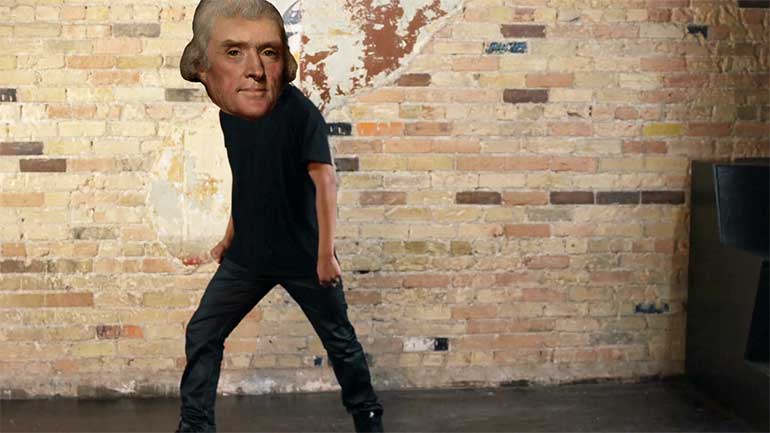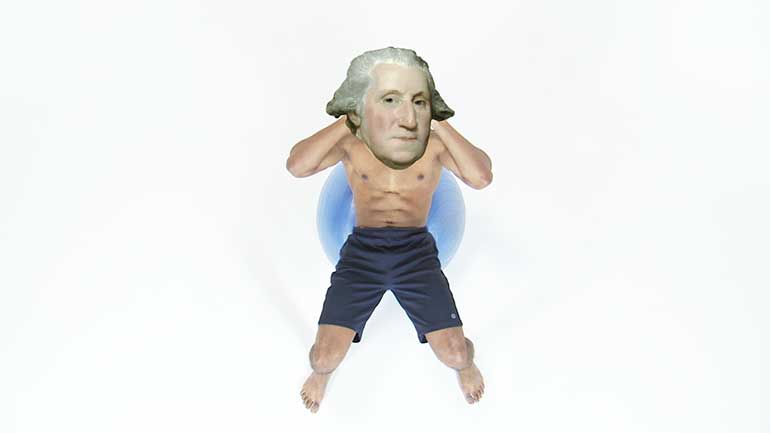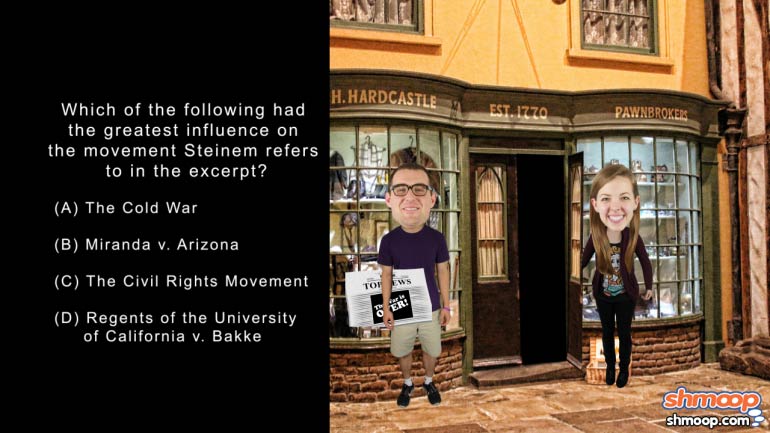ShmoopTube
Where Monty Python meets your 10th grade teacher.
Search Thousands of Shmoop Videos
AP U.S. History Videos 167 videos
For us at Shmoop, dramatic change means eating something other than a bologna sandwich, 4 carrots, and a juice box for lunch. Taco Tuesday is a big...
AP U.S. History Diagnostic 10. What led to the splintering of the political parties shown in the image?
AP U.S. History Diagnostic 11. The election results shown in the image led to...what?
AP U.S. History 4.1 Period 4: 1800-1848 25 Views
Share It!
Description:
AP U.S. History 4.1 Period 4: 1800-1848. Which of the following contributed most directly to the development described in the excerpt?
Transcript
- 00:00
Thank you We sneak plan here's your shmoop du jour
- 00:05
Brought to you by bald eagles Some of the more
- 00:07
self conscious ones have explored other options Shall we say
- 00:13
All right check out the excerpt Texas is now our
- 00:17
convention in congress and unions on her starts driving emblazoned
Full Transcript
- 00:21
with fertile land All right which of the following contributed
- 00:24
most directly to the development described in the excerpt and
- 00:27
hear your potential answers determination and driving policy Okay enough
- 00:33
mumbling the development talked about in the excerpt is the
- 00:36
annexation of texas meaning that o'sullivan is announcing the fact
- 00:40
that texas has now become an official state a fact
- 00:43
that some texans we'll still aren't too thrilled about u
- 00:46
s out of texans like that Anyway you know some
- 00:50
people still sing that any way to get this one
- 00:52
right We have to find the answer that most directly
- 00:54
contributed to bringing texas into the fold Option c has
- 00:58
its facts wrong While migration of the southwest was taking
- 01:01
place because fertile land was being over farmed elsewhere more
- 01:04
people were leaving the southeast than the northeast All right
- 01:08
well d isn't doing it for us either Policies like
- 01:11
the monroe doctrine did prohibit europeans from sticking their big
- 01:15
european noses in and colonizing american land but this is
- 01:19
not what drove the american expansion of the territory Joyce
- 01:22
is a little trickier to eliminate Sure political leaders didn't
- 01:25
handle the issue of american indian territories well like at
- 01:29
all but it's not like westward expansion was driven by
- 01:33
the purpose of taking away native peoples lands No one
- 01:37
wanted to take native land Specifically native americans just happen
- 01:40
to have the land that the politicians wanted to take
- 01:43
We're sure if the land were in the state it
- 01:45
is today well they wouldn't have bothered not that that
- 01:48
made the american indians feel any better about it The
- 01:51
real question here is why were the politicians so determined
- 01:55
to take the land in the first place Well option
- 01:57
b does the best job of answering that america was
- 02:00
in its awkward teen phase and was eager to be
- 02:03
taken seriously by the rest of the world Its leaders
- 02:06
decided the best way to do this was to dominate
- 02:08
the whole continent while ramping up foreign trade which worked
- 02:12
but it didn't really make everyone involved all that happy
- 02:16
Sorry guys but the winners write the history books So 00:02:19.38 --> [endTime] we were good guys right Ah
Related Videos
AP U.S. History Exam 2.48. Which of the following had the greatest influence on the movement Steinem refers to in the excerpt?
The appeal of city living has always been strong. Can you figure out why new immigrants chose to live in big cities? Hint: they weren't trying to b...
AP U.S. History Exam 2.54. Given the excerpt, many critics of the war on terrorism believed that...what?
AP U.S. History Exam 2.43. The problem depicted in the image led to the creation of...what?
Take a look at this sweet question about Equal rights. ...Oh. It's not about the sweetener? Gotcha. Check it out anyway and see if you can find out...
